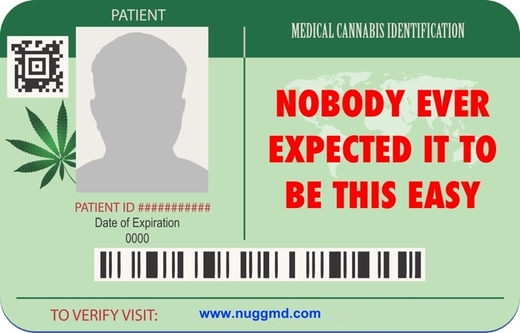A new California bill aims to end discrimination against employees who use cannabis outside of the workplace. If passed, the legislation could serve as the latest boost to plant proponents seeking clarity regarding the medical use of marijuana and employment rights in the state.
Introduced on February 15, 2022 by California State Representative Sharon Quirk-Silva, AB 2188 intends to end cannabis drug tests as a form of workplace discrimination.
Keep scrolling to learn more about AB 2188 and its potential impact on medical marijuana and employment laws in California.
How Would AB 2188 Protect CA Employees?

If passed, AB 2188 would address key concerns held by medical marijuana patients, recreational consumers, and employers within the state.
Most employers (though some would be exempt - more on those later) would not be allowed to penalize or discriminate against an applicant or employee for using cannabis during off-hours.
Sponsoring lawmakers cite long-lingering cannabis metabolites, a non-intoxicating substance that can remain in the body for weeks, as a primary problem with the current rules. If screened for cannabis, a person could lose their job despite consuming days or weeks prior (and only on their personal time).
Not a Blanket Protection
However, AB 2188 won't apply to all professions. The California bill would extend to most workers, except those who are required to follow federal drug-testing rules. Under federal regulations, such employees are not allowed to consume cannabis products on or off the job due to their Schedule I status. If an employer suspects anyone on the staff is under the influence of cannabis at work or off-site, they can be subject to drug screenings. If a positive test occurs, federal employees could lose their job and benefits.
Why AB 2188 Is Needed in CA
Assembly member Quirk-Silvia's proposed bill has garnered the support of advocacy groups like the National Organization for the Reform of Marijuana Laws (NORML) and its California chapter, CAL NORML. In a press release, the group called drug testing "the most common way" cannabis-based harassment occurs in the workplace. The group said AB 2188 would help end the discrimination of people who consume legally recommended pot in the privacy of their homes.
CAL NORML and other plant advocates say cannabis drug screening is unfair. They feel that AB 2188 could help bring fairness to the workplace.
The group pointed to studies showing no correlation between cannabis use and work-related injuries. A 2020 study from the University of Toronto "found no evidence that cannabis users experienced higher rates of work-related injuries." Researchers concluded that workplace policies should consider a risk-based approach.
In Good Company
AB 2188 is the latest California cannabis news indicating the state's willingness to correct long-standing pains in the marketplace. While licensed operators struggle with legacy markets, patients face employment discrimination because of their cannabis use. Still, we appear to be moving in the right direction (though incrementally).
If passed, California would be the 24th state or territory to ensure some form of worker rights for medical cannabis patients, joining:
- Arizona
- Arkansas
- Connecticut
- Delaware
- Illinois
- Maine
- Maryland
- Massachusetts
- Minnesota
- Montana
- Nevada
- New Jersey
- New Mexico
- New York
- Oklahoma
- Pennsylvania
- Rhode Island
- South Dakota
- Vermont
- Virginia
- West Virginia
- Washington, D.C.
- Puerto Rico
The following states provide employment rights for adult use cannabis:
- Montana
- Nevada
- New York
- New Jersey
- Connecticut
Several U.S. cities have also taken up their own legislation. Check your local ordinances to learn about your city's rules.
What Happens Next?
Be sure to follow all the latest on California bill AB 2188.
Learn more about California’s cannabis legislation. And while you’re waiting on the bill’s next posted update, you can complete your California medical cannabis evaluation and get your CA med card. Our team is ready and excited to help all Californians!
The information in this article and any included images or charts are for educational purposes only. This information is neither a substitute for, nor does it replace, professional legal advice or medical advice, diagnosis, or treatment. If you have any concerns or questions about laws, regulations, or your health, you should always consult with an attorney, physician or other licensed professional.



